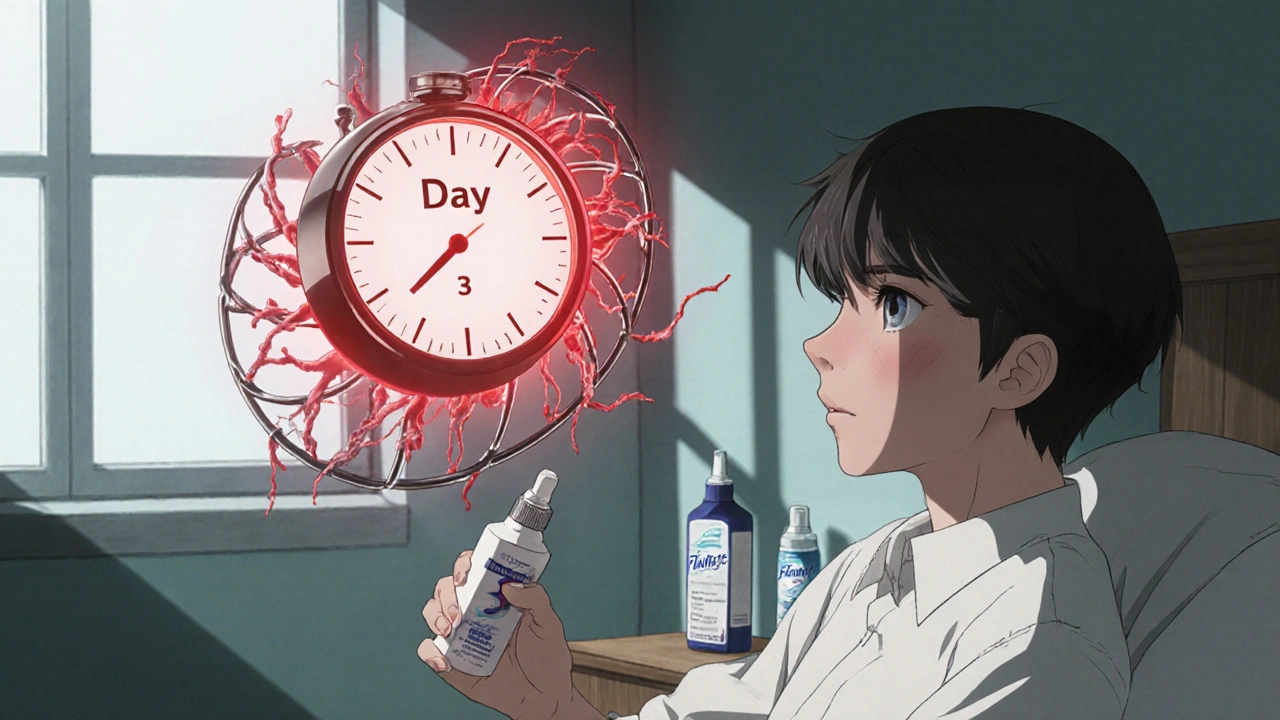Decongestant Spray Safety: Risks, Side Effects, and Smart Usage
When you reach for a decongestant spray, a nasal spray designed to shrink swollen blood vessels in the nose for quick relief. Also known as nasal decongestants, these sprays work fast—but they’re not meant for long-term use. Millions rely on them for stuffy noses, but few know how easily they can turn from helpers into hazards.
One of the biggest risks is rebound congestion, a condition where the nose becomes more swollen after the spray wears off. It’s called rhinitis medicamentosa. You use it for three days, feel better, then wake up clogged again—so you use more. Soon, you’re stuck in a loop: spray to relieve, then spray because you’re blocked. This isn’t addiction in the drug-seeking sense, but your body learns to depend on the chemical to keep your nasal passages open. Oxymetazoline, the most common active ingredient in over-the-counter sprays like Afrin. is the usual culprit. Even one extra day beyond the label’s three-day limit can trigger it.
It’s not just about congestion. Long-term use can damage the lining of your nose, dry out mucus membranes, and even cause nosebleeds or a perforated septum in rare cases. Some people report loss of smell, chronic irritation, or a burning sensation that won’t go away. And if you’re using it daily for weeks or months, you’re not treating your cold—you’re masking a deeper issue like allergies, sinusitis, or a deviated septum.
What’s worse? Many don’t realize they’ve crossed the line. They think, "It’s just a spray," or "I’m not taking pills." But the body doesn’t care how it gets the drug—it reacts the same. And unlike oral decongestants, sprays act directly on nasal tissue, making the rebound effect stronger and faster.
So what’s the fix? First, stick to the three-day rule. If you still feel blocked after that, see a doctor. Try saline rinses instead—they clean, moisturize, and don’t cause dependency. For chronic stuffiness, antihistamines or steroid nasal sprays (like Flonase) are safer long-term options. And if you’ve already been using it too long? Don’t quit cold turkey. Gradually reduce use, switch to saline, and give your nose time to reset. It can take weeks to recover.
Below, you’ll find real stories and science-backed advice on how decongestant sprays interact with other meds, why some people react worse than others, and what to do when your nose won’t cooperate without help. These aren’t just tips—they’re survival guides for anyone who’s ever felt trapped by their own nasal spray.
OTC Nasal Sprays: How to Avoid Rebound Congestion and Use Them Safely
Learn how to safely use OTC nasal sprays without triggering rebound congestion. Discover the 3-day rule, safer alternatives like saline and steroid sprays, and how to break the cycle if you're already stuck.

